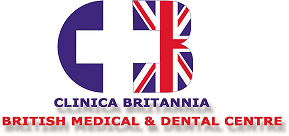Tetanus, also known as lockjaw, is a serious bacterial infection that affects the nervous system. It is caused by a bacterium called Clostridium tetani, which is found in soil, dust, and animal feces. Tetanus can be fatal if left untreated, so it is important to understand its symptoms, causes, and treatment options.
Symptoms of Tetanus
The symptoms of tetanus typically appear within 7 to 21 days after the infection occurs. The first symptom is often a stiff neck or jaw, which can make it difficult to open your mouth or swallow. Other symptoms include muscle stiffness and spasms, which can be painful and affect your ability to move. The muscles in the abdomen and back may also be affected, leading to difficulty breathing or swallowing. In severe cases, tetanus can lead to seizures and even death.
Causes of Tetanus
Tetanus is caused by the bacterium Clostridium tetani, which produces a toxin that affects the nervous system. The bacteria can enter the body through a wound or cut, especially if it is deep or contaminated with soil, dust, or animal feces. Common causes of tetanus include puncture wounds from nails, animal bites, burns, and surgical wounds. Tetanus is not contagious and cannot be spread from person to person.
Treatment of Tetanus
The treatment for tetanus involves cleaning and treating the wound to prevent further bacterial growth. The wound may need to be surgically cleaned or debrided, which involves removing any damaged tissue. Antibiotics may also be given to kill the bacteria and prevent further infection.
In severe cases, a tetanus antitoxin may be given to neutralize the toxin and prevent it from causing further damage. Muscle relaxants may also be given to reduce muscle spasms and stiffness. In some cases, a ventilator may be needed to help with breathing.
Prevention of Tetanus
The best way to prevent tetanus is to get vaccinated. The tetanus vaccine is part of the routine childhood immunization schedule and is usually given as a series of five doses. Adults should receive a booster shot every 10 years to maintain their immunity.
In addition to vaccination, it is important to practice good wound care to prevent tetanus. This includes cleaning wounds with soap and water, applying antibiotic ointment, and covering the wound with a sterile bandage. If you have a deep or contaminated wound, seek medical attention to have it cleaned and treated properly.
In conclusion, tetanus is a serious bacterial infection that can cause muscle stiffness, spasms, and even death if left untreated. The best way to prevent tetanus is to get vaccinated and practice good wound care. If you suspect you may have tetanus, seek medical attention immediately to prevent further complications.

